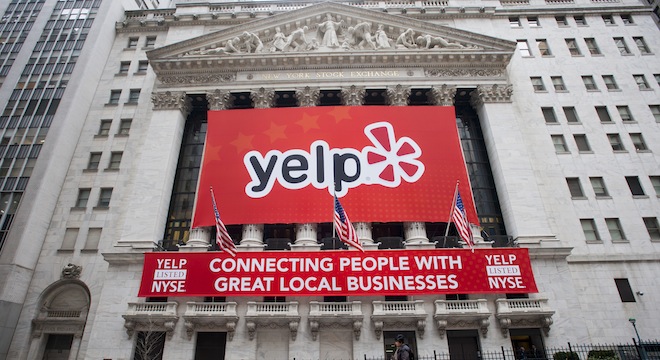The critical reviews and insinuations of theft a Virginia woman posted on the websites Yelp and Angie’s List about a construction contractor she hired to improve her home should be allowed to remain up on those websites unedited, according to the Virginia Supreme Court. In December 2012, the court ruled to overturn a prior preliminary injunction that had ordered the woman to edit and remove parts of her reviews.
The decision (PDF), posted online on Wednesday, is being hailed as victory for free speech online by Public Citizen, a nonprofit consumer rights organization whose attorney, noted First Amendment crusader Paul Alan Levy, represented the woman in her appeal to the Virginia Supreme Court.
“The preliminary injunction was prior restraint forbidden by First Amendment,” Levy told TPM in a phone interview. “Our argument to the Virginia Supreme Court was that you can’t get preliminary injunction against libel accusations. You can sue and if you win, receive damages for libel, but you can’t take down that speech in the meantime.”
Jane Perez, of Faifax, Virginia posted comments on Yelp and Angie’s List bashing a contractor she hired in June 2011 to improve her newly purchased townhome, Christopher Dietz, owner of Washington, D.C.-based Dietz Development. Among other statements, Perez accused Dietz of “damaging” her home during his work and wrote that she filed “her first ever police report when I found my jewelry missing and Dietz with only one key.”
Dietz sued Perez for libel in October 2012 and sought a preliminary injunction to have her remove parts of her comments from the websites, the latter of which was granted in early December 2012 by the Fairfax County Circuit Court.
That’s when the case came into the spotlight of national media outlets, which characterized it as the latest skirmish in the growing legal battle over the consequences of online commentary. In Perez’s case, she complied with the order and removed her comments.
But now, that order has been overturned, changing the battlefield once more. Virginia Supreme Court’s three-judge panel agreed with Public Citizen’s reasoning, finding the preliminary injunction against Perez’s comments “not justified,” and stating Dietz has an “adequate remedy at law,” that is, he can still pursue his libel case against Perez while her comments remain up online.
That’s exactly what Dietz and his lawyers plan to do.
“Yes I am surprised and yes I am disappointed” in the Virginia Supreme Court’s ruling, Dietz told TPM in a phone interview. “I don’t know why they accepted the appeal. It’s pretty straightforward for me that I was defamed. Having [Perez’s comments] stay up throughout the court case can affect my business.”
Dietz’s attorney, Milt Johns of the firm Day & Johns in Fairfax, Virginia, told TPM in phone interview that he believed the libel trial against Perez would likely begin by the fall.
“We will note an objection to that ruling,” Johns said of the Virginia Supreme Court’s opinion letting Perez’s comments stand. “And we will press on for an eventual jury trial seeking damages.”
Specifically, Dietz seeks a total of $750,000 in damages and a permanent injunction forcing Perez to remove and keep her comments about him off of Angie’s List and Yelp forever.
The sum, while it may seem a lot for just a few comments, will be demonstrated in court as “actual business Mr. Dietz has lost” as a result of them being posted, according to Johns.
And while both the Virginia Supreme Court’s ruling allowing the comments to stay up and the eventual, to be determined circuit court ruling will only legally apply to the commonwealth, lawyers on both sides of the case agree that it will have wider implications for the freewheeling nature of online comments and their resulting consequences on authors and subjects mentioned.
“The broader point is that it is important for speech to remain up so that people may draw their own conclusions,” Levy told TPM. “It’s important to have negative as well as positive comments. Not a lot of people sue over positive statements, so not many are taken down. But we can’t have the law make it really easy to get negative stuff taken down while positive stuff remains up. The law would improperly favor the merchant. That’s why we do these cases.”
“In my opinion a lot of people who write on blogs and write on review sites have a notion that because they sit behind the computer, they have impunity to say anything, including what they couldn’t say on the town corner,” said Johns. “Maybe there will be a point where legislatures get involved and set a higher bar for discussion on the Internet, but until then, we have to fall back on common law. Clearly, if you have means of communication that can cripple or destroy someone’s livelihood, that’s serious business.”






